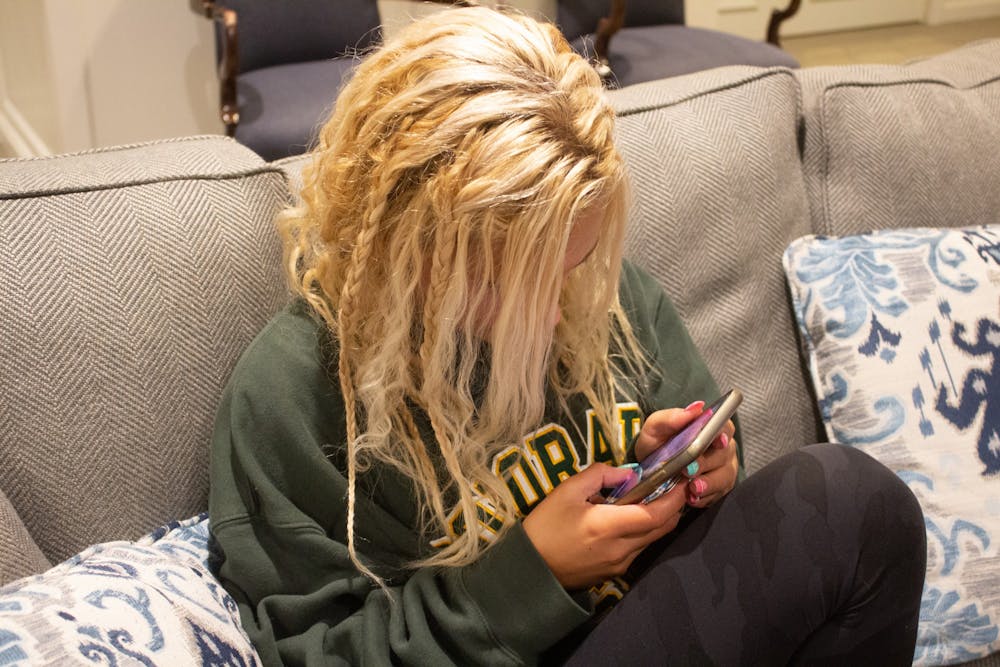In the era of fake news, crusades of politicization and partisan spin have breached the arena of facts. Truths once accepted as common, apolitical beliefs have been leveraged as political propaganda without any regard to the broader effect this distortion will have on the world.
With the increasing prevalence of misinformation, college students entering the adult world are tasked with the responsibility of checking facts and sharing only credible news. Otherwise, every truth is at risk of becoming warped and indefensible.
Never in our country’s history have we been able to so clearly see the link between misinformation and its potentially deadly consequences. Throughout the COVID-19 pandemic doubts have surfaced about everything from the effectiveness of masks at preventing infection to the efficacy of vaccines, both of which are effective.
These two pieces of information, however, should be considered common knowledge. We all know doctors wear masks to prevent the spread of disease, and vaccines have protected people from diseases that used to be prevalent, such as polio, tetanus and measles.
“The fundamental problem with misinformation is that once people have heard it, they tend to believe and act on it, even after it’s been corrected,” Dr. Stephan Lewandowsky, a psychology professor at University of Bristol, said in an article from the American Psychological Association.
The battle runs deeper than simply correcting misguided opinions.
A recent — and horrifying — example of the threat misinformation presents in the medical world is Ivermectin, a veterinary drug that spread across the internet claiming to be a quick cure for COVID-19. False claims spread so fast that on Sept. 4 it was reported that hospitals in Oklahoma were overrun by people seeking medical attention after taking the drug.
First discussed in a 2020 publication by an Egyptian doctor, claims that Ivermectin caused patients with COVID-19 to recover quickly went widely unchallenged until the doctor’s study was retracted in July. The Centers for Disease Control and Prevention and Food and Drug Administration have stated the drug has no proven connection to helping fight against the virus.
The study, shared far and wide even after it was proven false, provides tempting evidence for those desperate to cure their active infections.
Is there any way to course-correct these misconceptions or stop them from spreading in the first place?
Issuing corrections in response to misinformation is one strategy, science writer Zara Abrams said in an article from the American Psychological Association.
“Much more effective, though, is inoculating people against fake news before they’re exposed — a strategy known as ‘pre-bunking,’” Adams said in the article.
Pre-bunking works in reverse of typical fact-checking. Similar to a vaccine, if we are exposed to small bits of fake news before we run into them organically, we naturally become more resistant to false claims formed using that misinformation. As students, we can apply this technique every time we run into new information by fully researching topics and coming to educated conclusions.
In the instance of Ivermectin, the lack of further research and basic fact checking by information consumers led to the endangerment of lives across the United States. When your research consists of shared Facebook articles and stories on Instagram, there aren’t any checks on the provided information. Without a second opinion of a trusted health care professional or additional Google search for confirmation, people’s lives were put on the line.
We as students must remain vigilant in the value of our own beliefs. We can start by analyzing the reliability of our own sources and understanding how fake news can spread online so we don’t fall victim to misinformation.
A stellar research tool provided by IU is the Observatory on Social Media whose primary purpose is to counter disinformation, information deliberately intended to mislead, and discover how it skews the perception of truth on social media. A few clicks through this website can help you visualize the spread of fake news, explore bot behavior on Twitter and discover the connection between vaccine disinformation and vaccination rates across the country.
As college kids, we are often told that we are the “best and the brightest” of America’s future. But to live up to those standards, we must ensure that we stay vigilant in our fight against misinformation and strive to uphold the truth.
Chris Sciortino (he/him) is a junior studying theater and public relations. He is involved with the Queer Student Union and College Democrats at IU and spends a considerable amount of time showing people pictures of his dog, Ellie.






